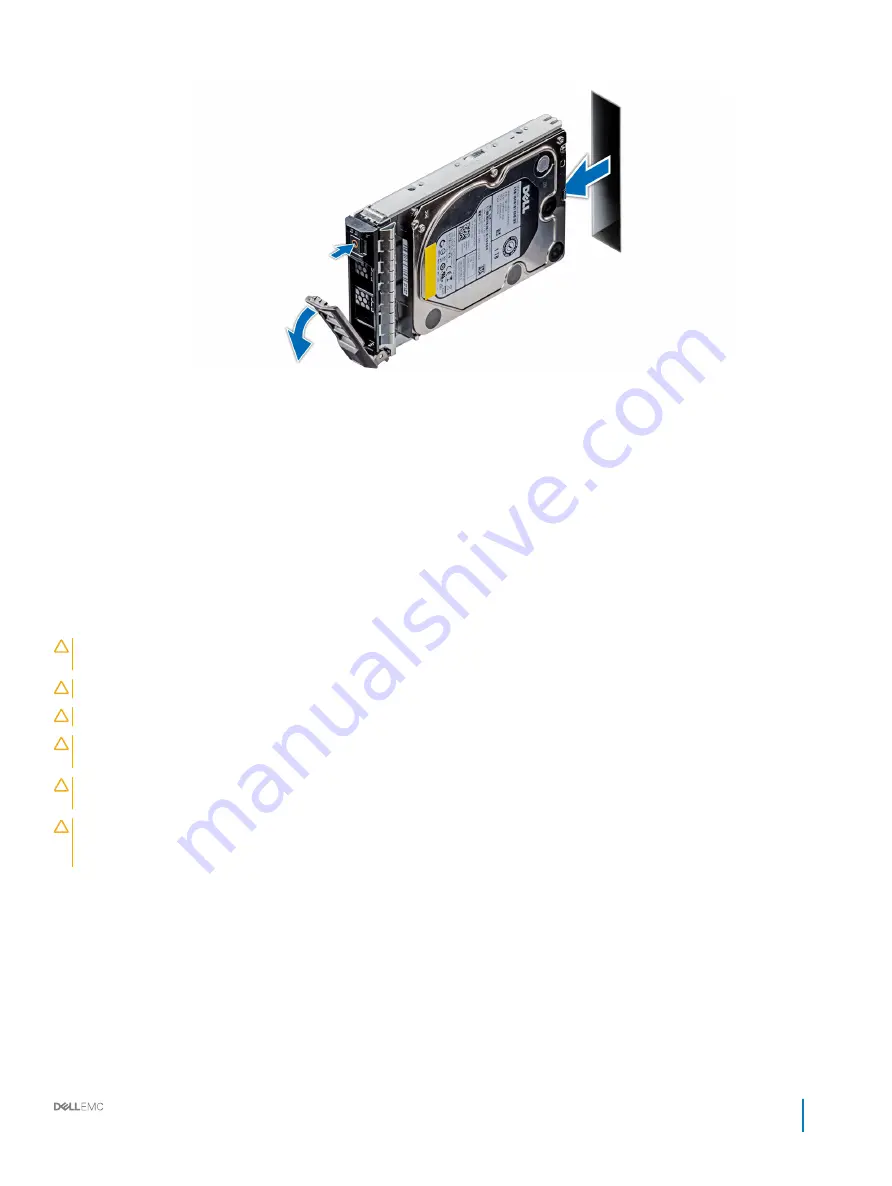
Figure 30. Removing a drive carrier
Next steps
1
Follow the procedure listed in
After working inside your system
.
2
Install a drive carrier.
3
If you are not replacing the drive immediately, insert a drive blank in the empty drive slot to maintain proper system cooling.
Installing a drive carrier
Prerequisites
CAUTION:
Before attempting to remove or install a drive while the system is running, see the documentation for the storage
controller card to ensure that the host adapter is configured correctly to support drive removal and insertion.
CAUTION:
Mixing drives from previous generations of PowerEdge servers is not supported.
CAUTION:
Combining SAS and SATA drives in the same RAID volume is not supported.
CAUTION:
When installing a drive, ensure that the adjacent drives are fully installed. Inserting a drive carrier and attempting to
lock its handle next to a partially installed carrier can damage the partially installed carrier's shield spring and make it unusable.
CAUTION:
To prevent data loss, ensure that your operating system supports hot-swap drive installation. See the documentation
supplied with your operating system.
CAUTION:
When a replacement hot swappable drive is installed and the system is powered on, the drive automatically begins to
rebuild. Ensure that the replacement drive is blank or contains data that you wish to overwrite. Any data on the replacement drive
is immediately lost after the drive is installed.
1
Follow the safety guidelines listed in
2
If applicable, remove the drive blank.
Steps
1
Press the release button on the front of the drive carrier to open the release handle.
2
Insert the drive carrier into the drive slot and slide until the drive connects with the backplane.
3
Close the drive carrier release handle to lock the drive in place.
Dell EMC PowerEdge T440 Installation and Service Manual
Installing and removing system components
81






























